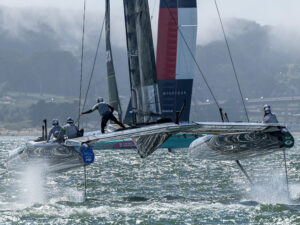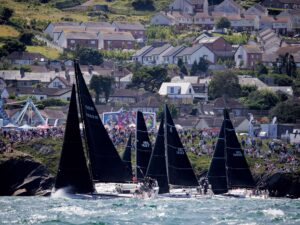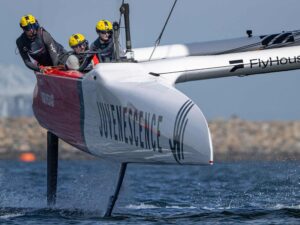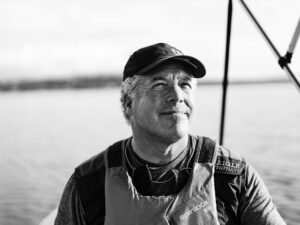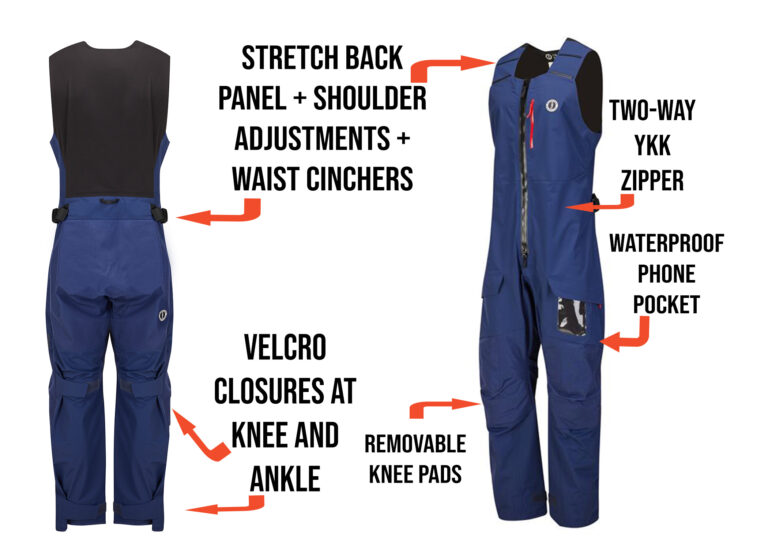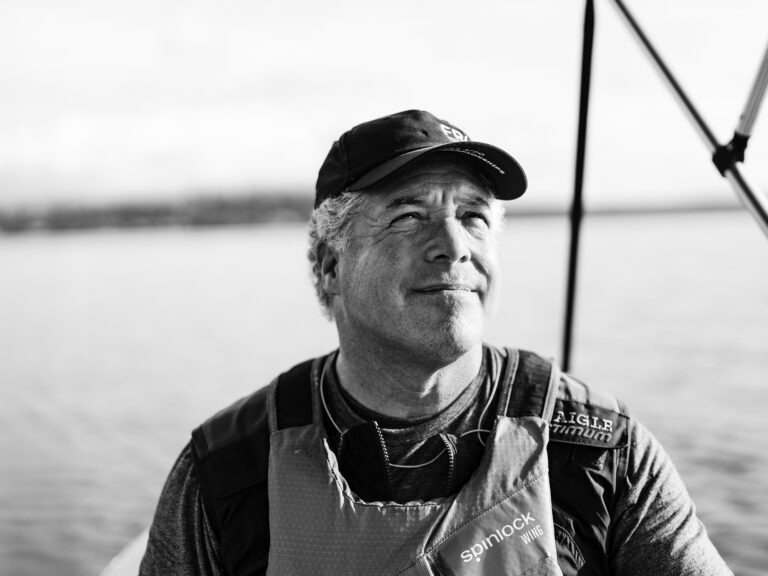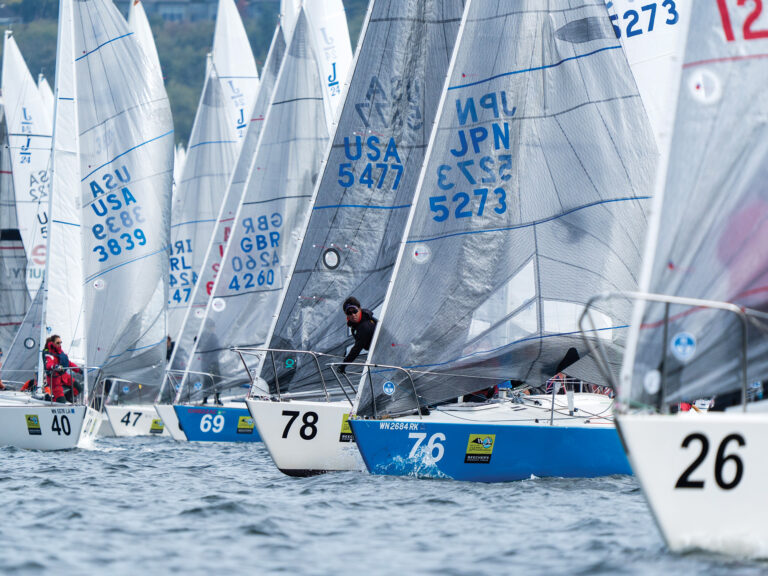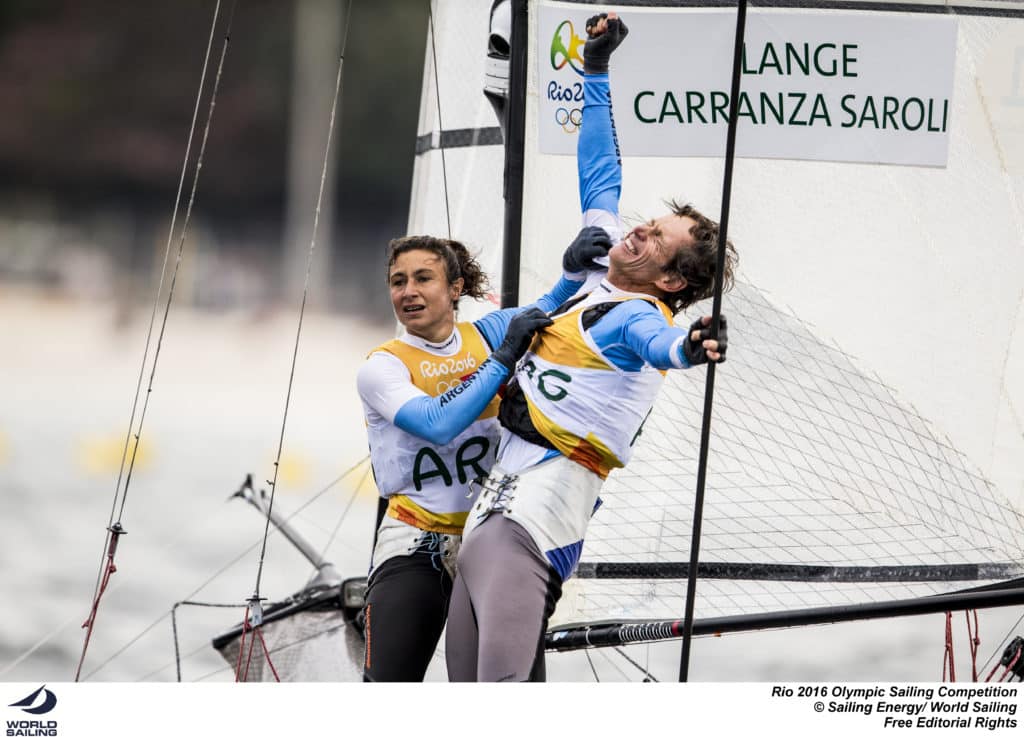
The Rio 2016 Olympic Sailing Competition
The Olympic Regatta is a culmination of a week’s worth of sailing, and while medalists can be decided before the final race, the double-points, all-stakes on the table finals are still the most heart-pounding moments in Olympic sailing.
Laser
Australia’s Tom Burton was the only person who could take away gold from Croatia’s Tonci Stipanovic today in the Laser medal race, and Stipanovic knew it. In the prestart, Stipanovic attacked Burton, sailing in front of him and backing his sail, forcing Burton to sit behind him. Stipanovic needed at least six boats to finish ahead of Burton to secure his gold medal, and his maneuver was meant to prevent Burton from starting before he was at least that far behind in the fleet. However, Burton was not so easily defeated. Stipanovic left space between his boat and the starting line, enough to ensure he himself didn’t OCS. Seeing the space, Burton sheeted in and sailed to leeward of Stipanovic, forcing Stipanovic to tack away to avoid contact as the windward boat. In this split-second maneuver, Burton forced Stipanovic to tack well around, and in doing so delaying his start. The Australian took off on the first beat, tailed by Sam Meech from New Zealand, andRobert Scheidt from Brazil. He finished third to Stipanovic’s ninth, winning the gold.
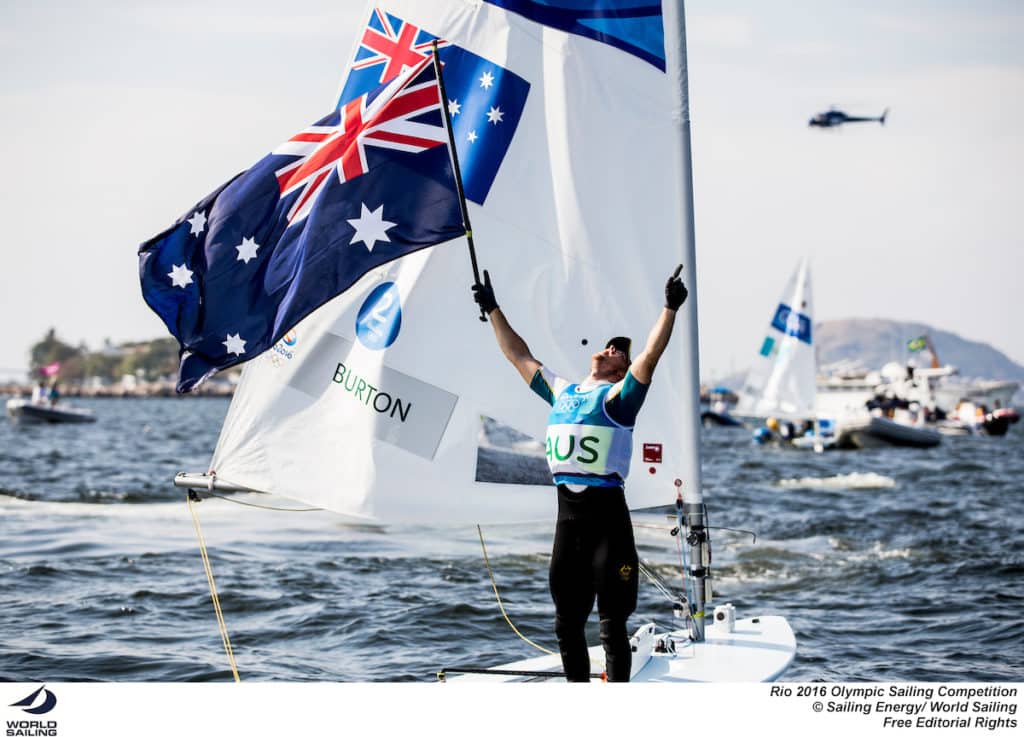
The Rio 2016 Olympic Sailing Competition
“It’s the first medal in sailing in history of Croatian sport which is really key,” says Stipanovic. “Today I was trying to stay in first place, but it didn’t happen. I’m a bit disappointed, but as it settles in, I’m and more happy with my silver medal.”
Scheidt, who was sailing for bronze, did manage to win the medal race, but Meech’s fourth place win assured him the bronze over the famous Brazilian. Scheidt failed to win his record-breaking sixth Olympic medal.
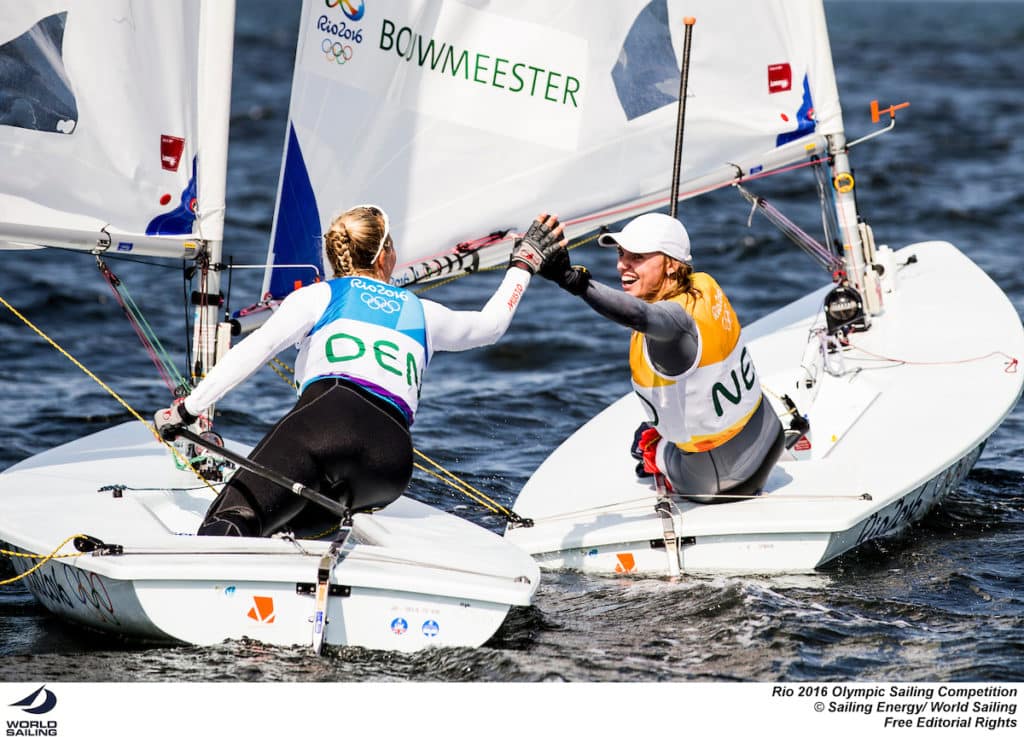
The Rio 2016 Olympic Sailing Competition
Laser Radial
On the second beat of the Laser Radial medal race, Netherland’s Marit Bouwmeester was losing the gold. Ireland’s Annalise Murphy was leading her by four boats, enough to steal away Bouwmeester’s spot atop the podium. Then, the fleet split into two distinct packs on the final run, with Bouwmeester leading the pack behind, fighting to make it up to the front. As they eased and trimmed downwind, Murphy was nearly within reach of gold when boats started to pass her. Murphy sailed the final downwind leg beautifully, but her boatspeed was lacking. She slipped back in the pack, putting Bouwmeester ahead of her in points. Murphy finished fifth to Bouwmeester’s seventh, earning herself the silver medal.
For Murphy, Rio was a vindication of her disappointment in London, where she led for most of the Regatta before finishing off the podium, in fourth, overall.
“It’s incredible, I was pretty heartbroken after London,” says Murphy. “I had been in medal position all week. So this week, to be in medal position again, it’s been incredible. I didn’t think six months ago I would be a medal contender here so to be able to come back in the past couple of months has been a dream come true.”
When Bouwmeester crossed the line, she looked to a support boat for confirmation, mouthing “Me?” and pointing to herself. When she was answered in the affirmative, she raised her hands above her head in triumph. She sailed over to Murphy and bronze medalist Anne-Marie Rindom, from Denmark, to offer her congratulations, and while Bouwmeester took a victory lap with the Dutch flag, Murphy and Rindom jumped in the water to celebrate their win.
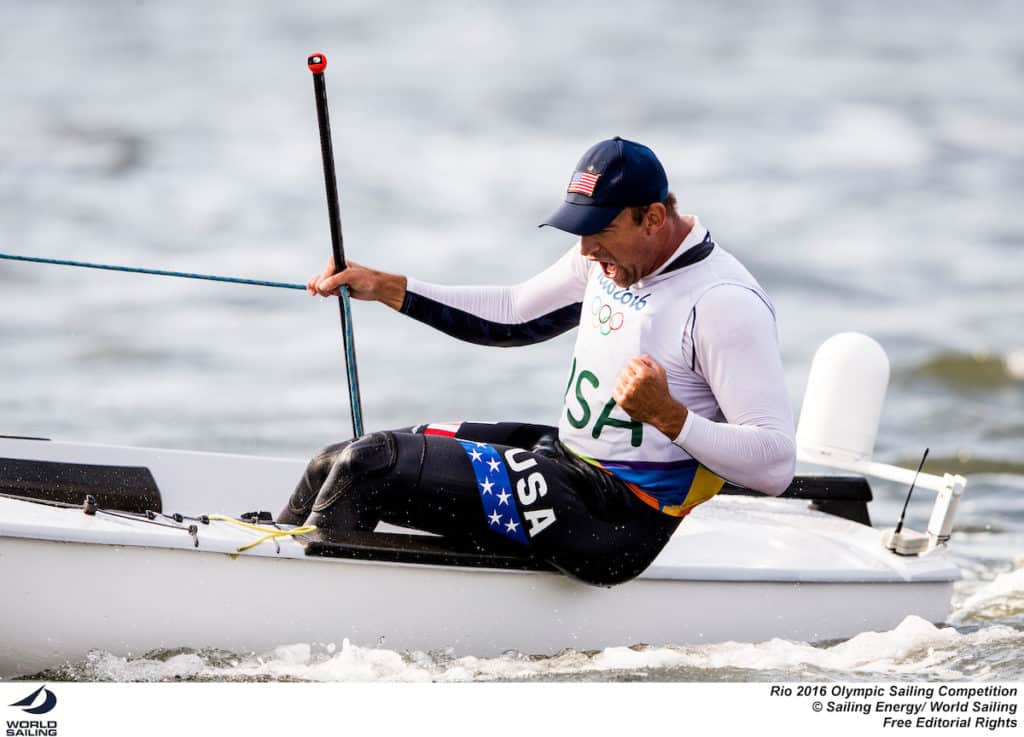
The Rio 2016 Olympic Sailing Competition
Finn
While the gold medal was already in the bag for Great Britain’s Giles Scott before the medal race, the silver and bronze were up for grabs among the top two thirds of the fleet. For USA’s Caleb Paine, the pressure was mounting. He entered the Olympics after a stressful national trials that came down to the final race of the final event against Zach Railey, who he trained with when Railey went to London in 2012. In the Olympics, Paine had a new series of ups and downs, including an amazing second place finish comeback that was protested. He was scored a DSQ, dropping him well below medal race contention. The next day, video evidence convinced the jury to overturn the penalty, and Paine’s scores were restored, sending him into the medal race in fourth overall.
For Paine, the entire medal race was intense. He took the lead from the start, starting on the boat end and seeing a right side shift over his shoulder, grabbing it first. He took the lead and extended it, leg by leg, ultimately crossing the finish line more than 80 meters in front of gold medalist Giles Scott. There was never a doubt through the entire medal race that Paine could possibly lose the lead, he was simply too far ahead.
“It was a tough push and a hard medal race, but it makes it easy when you make the right move right off the bat,” says Paine. “The rest of the race was making sure I didn’t mess it up. I knew I had to stay certain points ahead of certain people, but I knew if I got out in front and won the race things would become a lot easier due to the fact that it would add stress to the people behind and maybe cause them to make erratic decisions.”
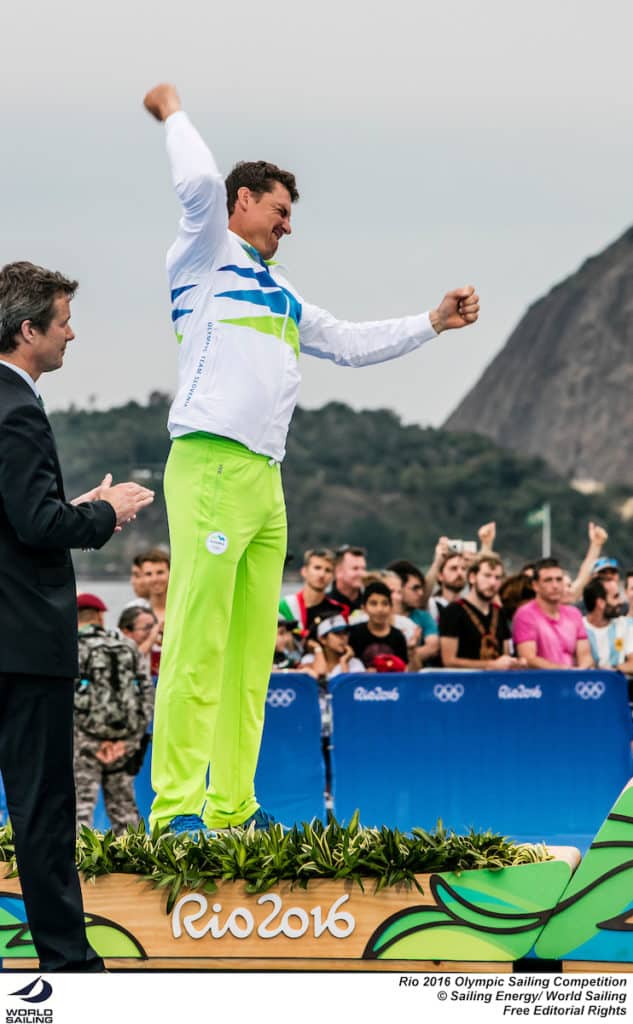
The Rio 2016 Olympic Sailing Competition
Silver medalist Vasilij Zbogar, from Slovenia, confirmed that this was his last Olympics at 40 years old. “I feel relief that it’s over and that it went well,” he says. “I was only dreaming of this a week ago. My first two medals were in Lasers, this is the Finn, and as the oldest sailor in the fleet it was even more difficult. I was struggling for the last few years, and continued to push myself. Fortunately, my mind is still 20 years old. I tried to sail as smart as possible, especially because strong breeze is difficult for me. I tried to survive the strongest wind, and I did survive. All I wanted was to challenge for the medals.”
As Zbogar ascended the podium to collect his silver medal, his countrymen chanted his name. He pumped his firsts above his head in time, medal around his neck, and took his final Olympic bow.
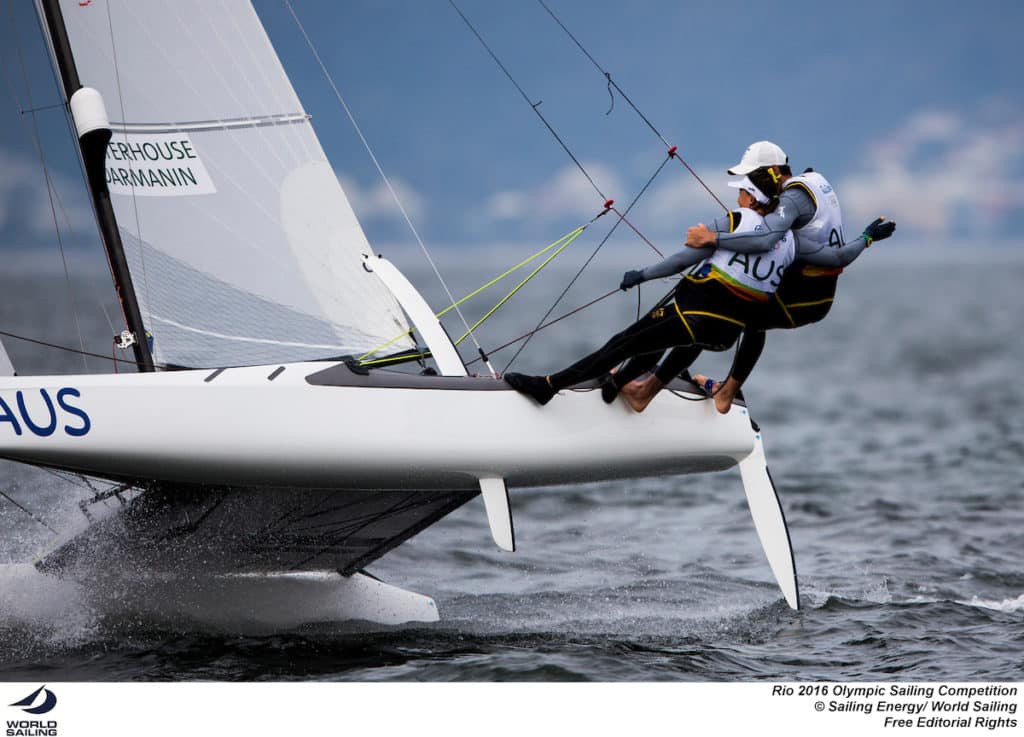
The Rio 2016 Olympic Sailing Competition
Nacra 17
On-water umpiring saved the day for Nacra fans, as the race was dotted with penalties and it could have been an extremely late night while juries sorted out the chaos. Fortunately, there are no outstanding protests in the fleet, so the medals do stand.
Even with two penalties against them, Argentina’s Santiago Lange and Cecilia Carranza Saroli finished sixth in the medal race, winning the gold medal. For Lange and Saroli, it wasn’t the actual finish of the race that was the defining moment, but the meaning behind their journey to get there.
Lange proved that his age (54) didn’t limit his ability to win an Olympic medal. Nor did cancer, losing half of a lung, or the challenge of a brand new boat and team. None of the medals were locked away in this class, but with a clean race and a 6th place finish in the medal race, Lange and Saroli beat out Australia’s Jason Waterhouse and Lisa Darmanin who took home silver.
“I started this Olympic cycle as a coach for my sons,” says Lange. “In the summer, I was running on the beach in Brazil and decided it was too much responsibility to coach my own sons.”
Intrigued by the challenge of a new multihull (Lange’s medals from 2004 and 2008 are in the Tornado catamaran) and the mixed-gender boat, Lange teamed up with Saroli to see how they’d do. Lange says that two days into sailing together, they had already set their sights on the Olympics.
Lange was diagnosed with cancer in 2015. Though his speedy recovery following the removal of a portion of his lung is impressive, Lange prefers to focus on the sailing. “This may help to give strength to many people who are going through what I’ve been through,” says Lange of his illness. “But, I prefer to focus on what we did athletically. The disease has nothing to do with it, it was a stone in the road. I became obsessed with getting to Rio very well prepared and we did.”
With a gold medal around his neck, and two more at home, Lange still isn’t finished. “I still have a dream,” he says. “If I feel like I have a good project and chances to do well, I will go to Tokyo. I will try. As long as I can do it and my knees survive, my back, I will keep doing it.”
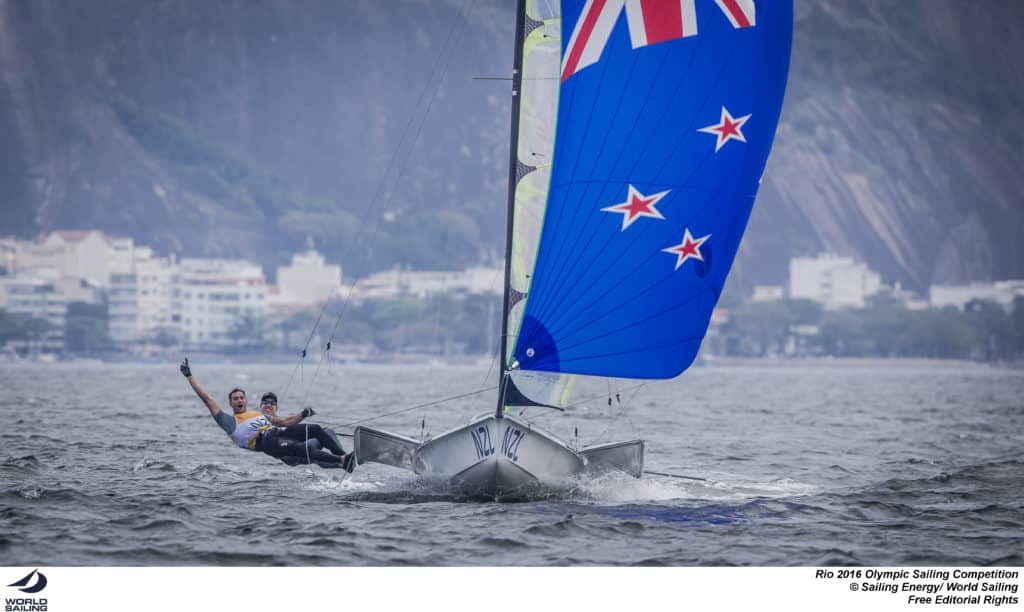
The Rio 2016 Olympic Sailing Competition
Beyond the Pao medal racecourse, which was the epicenter of attention today, the skiffs and 470s both completed their preliminary races. New Zealand’s Peter Burling and Blair Tuke, in the 49er, clinched the gold medal before the medal race, scheduled for Thursday. The 49erFX is the opposite, with the top three teams tied for points and the fourth one point behind. Spain, Brazil, Denmark and New Zealand will be battling for all three medals between them, as teams outside of the top four are simply too far below in the count.
Interestingly, the 470 fleets have a similar theme. On the men’s side, the top three have closed themselves into a battle for medals, while on the women’s side eight teams have a chance to medal. Great Britain’s Hannah Mills and Saskia Clark have squared away gold if they can sail a clean medal race, but silver and bronze could go to any of the other seven teams. New Zealand’s Jo Aleh and Polly Powrie have climbed back from a terrible start to the week to second place, but they’ll be in serious defense mode on Thursday to keep their place on the podium.
Full results from the regatta are available at sailing.org

